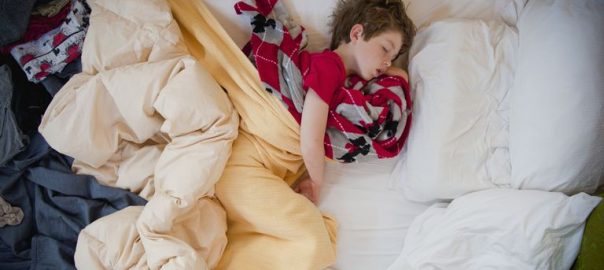
Sleep Habits and Orthodontics: How Your Child’s Sleep May Be the Sign of a Problem
Sleep habits and orthodontics are actually related in more ways than one. We all know that sleep is an important part of our health. For children, sleep helps with brain function and the process of development. It is during the sleep cycle that kids’ growth actually occurs. But, did you know that your child’s poor sleep habits may actually be a sign that there is an orthodontic issue?
Sleep-related disorders can affect health development, a child’s ability to learn and even their mood! And, while sleep apnea is a common cause of sleep disruption, there are many ways orthodontics may be causing your child to have sleep apnea. Teeth grinding, mouth breathing, snoring, and jaw issues can all be an underlying cause of sleep apnea. Let’s find out more to make sure you have a hold on your child’s sleep habits and orthodontics.
How Sleep Disorders Affect Children
Sleep apnea is a common sleep disorder that affects a person’s ability to breath while asleep. Many of us experience a pause in our breath while we are sleeping. But, if it happens for longer periods or is frequent during the night, this can be a major problem. Sleep apnea is a sleep disorder that comes from an obstruction in the upper airway. And, believe it or not, it is common in kids and teens.
For patients with sleep apnea, the oxygen levels in the body drop. This is not only an issue because it disrupts sleep, it can be a dangerous health concern. For children, sleep apnea causes them to lose the restorative rest they need to properly develop. This can affect behavior, cognitive ability, growth, and overall physical health. While there are many factors that cause sleep apnea, sleep habits and orthodontics can be the underlying cause.
How Do Sleep Habits and Orthodontics Relate?
If the structures of the mouth, jaws, and throat are the cause of obstruction in the airway, sleep apnea may be resolved with common orthodontic treatment. For some patients, the structure of the mouth, jaw, and throat can lead to a narrowing of the airways, causing them to become constricted. If sleep habits and orthodontics are related, fixing these mouth issues can improve your child’s quality of life and your own!
The common signs of obstructed sleep apnea are:
- Regularly snoring
- Brief pauses in snoring or loud gasps for air
- Heavy breathing
- Restless sleep
- Mouth breathing
- Grinding or clenching of the teeth
- Behavioral issues like ADHD-like symptoms
- Daytime fatigue
When it comes to sleep habits and orthodontics, mouth breathing can have a major impact on your child’s sleep. Breathing through the mouth rather than the nose can alter how the face and jaw grows, result in crooked teeth, and cause patients to have a receding jaw. The sleep issues often prevent the patient from entering into a deep state of sleep. This can even lead to teeth grinding and clenching.
How Can Orthodontics Help?
If your child displays the common signs of sleep apnea, talk to their pediatrician. Since there are other causes of sleep apnea, your child’s pediatrician will do a thorough checkup. For example, enlarged tonsils and adenoids can be a cause. But, if sleep habits and orthodontics are your bad combination, the good news is there are ways to fix it!
You can schedule an appointment with an orthodontist for your child as early as seven-years-old. Talk about your concerns with your child’s sleep habits. Your orthodontist will check for any abnormalities or issues with the development of the face, jaw, or mouth to determine whether orthodontics is playing a part. Sleep habits and orthodontics can easily be resolved by:
- Directing the growth of the facial structure to eliminate mouth breathing
- Using a palatal expander to increase airflow
- Using an oral appliance to encourage jaw growth
- Treating teeth grinding
- Setting the teeth up for proper alignment to reduce the effect of crooked teeth
If your child snores, breathes through their mouth, or grinds their teeth at night, don’t ignore it. Sleep habits and orthodontics are closely related in many patients. Talk to your child’s orthodontist to determine whether the alignment of their mouth, teeth, or jaw is causing poor sleep habits.
